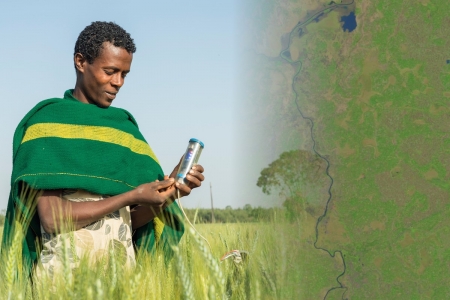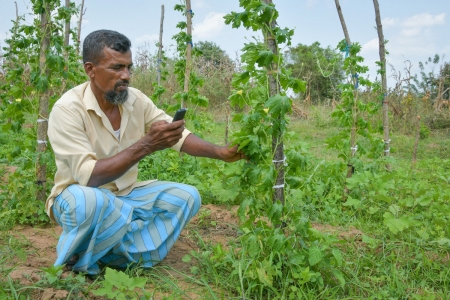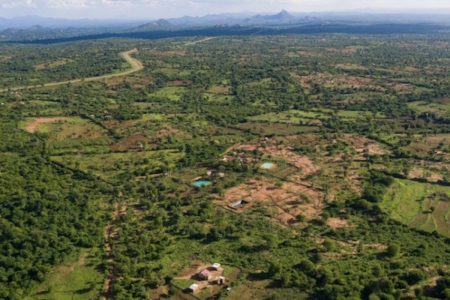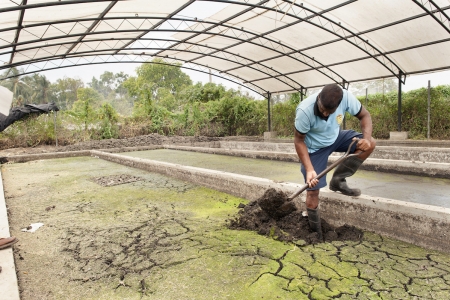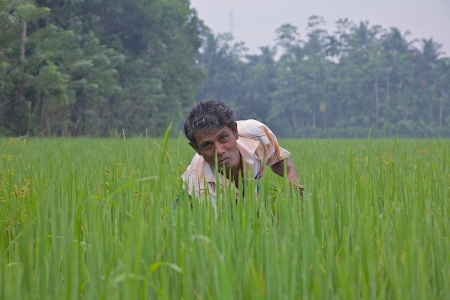The International Water Management Institute's (IWMI) Mark Giordano has struck a chord recently with his presentations of why Integrated Water Resources Management (IWRM) might not always be the best approach to solving our water problems.
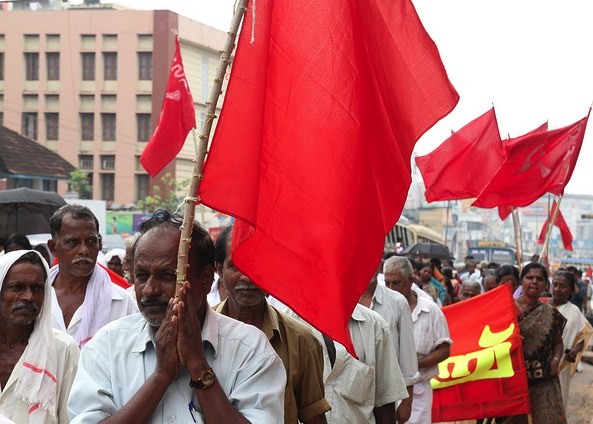 Farmers take to the streets as a form of dissent in India, and electricity is no exception. Photo: Johan Bichel Lindegaard on Flickr
Farmers take to the streets as a form of dissent in India, and electricity is no exception. Photo: Johan Bichel Lindegaard on FlickrIWRM promotes a coordinated, democratic approach to managing water, land and related resources, involving multiple interests in policy making. While the traditional approach was fragmented, IWRM is based on the premise that water is a shared resource, and should be managed jointly and in an equitable manner for social and economic good, while also protecting eco-systems. Giordano, IWMI theme leader of water and society, leads off his talks by saying those are reasonable principles as guidelines, but they can cause problems when the ideas become a formulaic doctrine as is now often the case.
“The IWRM concept is very nice but it’s basically been turned into a dogma or a condition for international bank lending in developing countries,” Giordano said. “It’s forcing reasonable first ideas into law.”
Sri Lanka
He cited the example of what happened when the IWRM process was “inflicted” on Sri Lanka two decades ago. International donors funded water policy reform focused on IWRM ideals, including stakeholder participation, that formed diverse working groups and generated 115 meetings and discussions. The process culminated with a draft water policy and law that included most of the ideas associated with the IWRM ideal, including tradable water rights and the reorganization of water administration based on river basin organizations.
Then came the backlash – protests that the process really wasn’t open, that it was merely done to satisfy donor demands, that cultural norms about the value of water weren’t understood.
“The government withdrew the policies,” Giordano said, and 20 years later Sri Lanka still lacks a water policy and a coordinated strategy to deal with the recent droughts and floods. “Not only was (IWRM) not useful, the way implementation was done set back real reform.”
So what should be done instead? “You can do lots of things,” Giordano said.
In his presentation, Giordano gives examples.
Central Asia
In Central Asia, treaties based on IWRM ideals were signed to solve the Aral Sea problem after the break up of the Soviet Union, but they simply haven’t been followed in the two decades since. For example, tensions still exist between hydropower-centric upstream countries and downstream countries that aren’t getting enough water to irrigate their crops.
The recommendation: Scrap the basin-wide approach and look for smaller solutions to reduce trans-boundary conflicts and create space for broader negotiations. Downstream countries can use managed aquifer recharge to store water from winter releases, thereby reducing the need to change upstream practices. Individual rivers and canals that cross national boundaries can be jointly managed, without waiting for a functioning basin wide agreement. Initial indications are that this is working to solve real water problems.
Gujarat
In Gujarat State in western India, heavily-subsidized electricity to the agricultural sector led to aquifer over-pumping, a nearly bankrupt electrical industry and poor rural power supplies.
The suggested IWRM solution to the groundwater crisis was to price electricity and groundwater at its cost – a politically unimplementable move that sparks massive farmer unrest and can bring down governments, Giordano said.
IWMI instead pushed for a pragmatic alternative: keep intelligent subsidies but also separate power feeds for farm and non-farming uses, provide uninterrupted power for irrigation but only during specific periods. Other recommendations included supporting on-farm water storage and micro-irrigation. While pricing as a solution had been discussed for 20 years to no effect, these recommendations were actually implemented as part of a program called Jyotigram Yojna (Village of Light) and losses to state electricity boards and groundwater pumping are down. And the plan is being copied in other states.
Giordano said his presentation, while controversial to some in the water-management circles, has resonated with his audiences. He concludes that while IWRM provides good ideas, the almost universal focus on it by the water management community has caused us to lose sight of other promising options that can solve real-world problems.
“Keep the ideal in mind but don’t worry about being perfect,” he said. “Perfect isn’t going to happen, so let’s look at what makes things better.”



